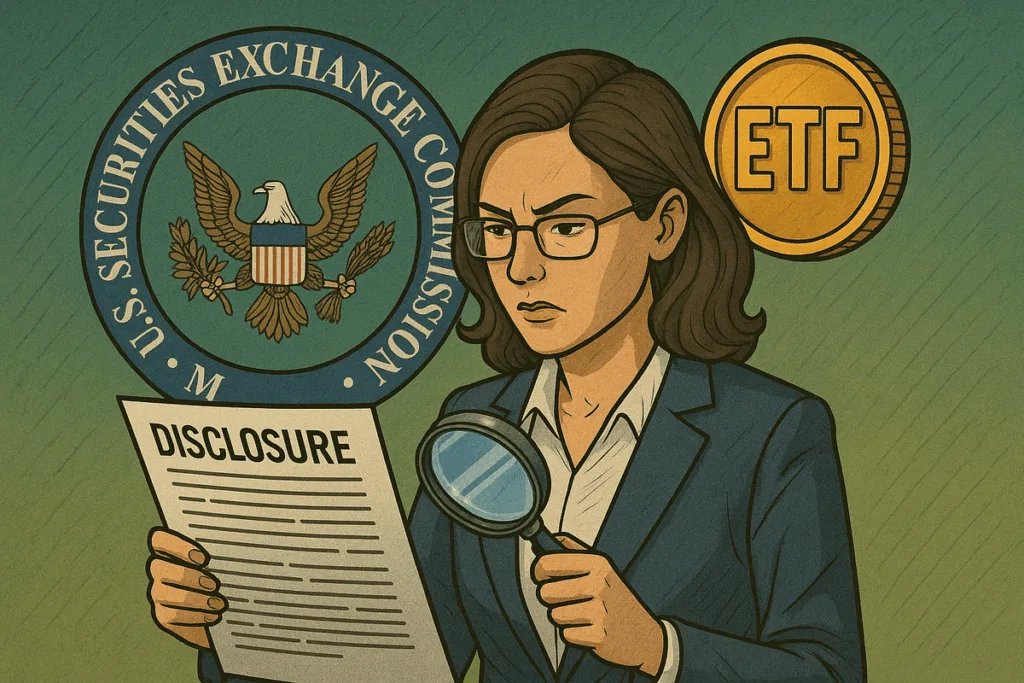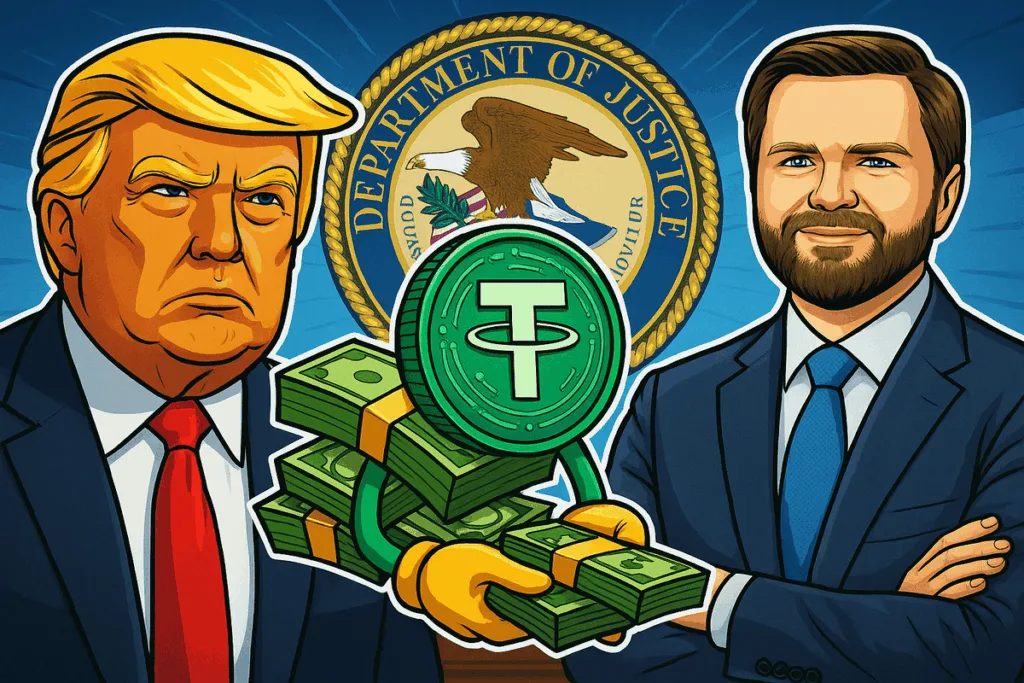The Securities and Exchange Commission’s Division of Corporation Finance has issued new guidelines detailing disclosure requirements for crypto asset exchange-traded products (ETPs). The new framework clarifies how federal securities laws will apply to issuers of crypto‑ETFs.
Some key amendments proposed include a cover-page disclosure of the initial offering price and the name of any underwriter or “authorized participant.” The issuer needs to give a simple summary in English of their prospectus and highlight the comprehensive risks involved.
Issuers will now be required to outline the ETP’s investment objective, underlying crypto assets, management and use policies, treatment of forks or airdrops, and explain how asset dilution over time due to fees works. In terms of risks, issuers must include risks specific to crypto, like price volatility, cybersecurity threats, and market manipulation that could occur. Investors must be made aware of network protocol vulnerabilities, concentration risk, and risks tied to service providers and competing products.
Newsletter
Get weekly updates on the newest crypto stories, case studies and tips right in your mailbox.
For Net Asset Value (NAV), disclosure must be made as to how the company plans to issue or mint crypto, its consensus mechanisms, staking, valuation methodology as well as fallback procedures. Issuers must disclose storage policies for private keys, including whether they use cold, warm or hot storage methods, and explain who has access to private key information, according to the statement.
Impact on ETF Issuers
Under the new plan, ETF sponsors skip the usual Form 19b-4 process if the token meets certain fixed standards. Rather than following the traditional route, issuers will file a Form S-1 with the SEC and wait for a 75-day review period. If the SEC does not object during that time, the ETF can proceed to be listed.
Tokens that satisfy specific market-related benchmarks, such as minimum thresholds for total market cap, daily trading activity, and liquidity on regulated platforms, will be eligible now.
The new guidelines are currently only staff views, and not enforceable rules, but offer clarity while awaiting formal Commission adoption. Bloomberg analysts have reiterated that the new guidelines will fast-track the process, seeing a 90% approval chance for ETFs tied to Dogecoin, Cardano, Polkadot, and Avalanche. They also raised the chance of Solana, Litecoin, and XRP ETFs to 95% by 2025.










